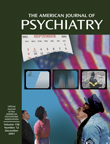To the Editor: My editorial was based on data, not assumptions. It was data that led the U.S. Public Health Service Task Force on Women’s Health to conclude that women’s health care had been compromised by the lack of research into women’s health. It was those data that convinced the NIH to adopt a policy mandating the inclusion of women in clinical trials, and it was data documenting the failure of researchers to implement that policy that drove the U.S. Congress to enact the policy into law. Fortunately, federal research dollars are not diminishing; there are exciting opportunities to develop new knowledge in the areas opened up by these developments.
In the past, single-sex research on women was nearly always related to the reproductive system, while research performed on men encompassed ailments affecting both genders in the rest of the human body. That research, and trials including both sexes but not analyzed by gender, has been the basis for the care of both men and women. However, women differ from men not only in anatomy and reproductive physiology but also in general disease etiology, symptom profiles, and response to treatment—not to mention crucial psychosocial variables. A world view blind to those differences deprives scientists of fascinating areas of study, physicians of essential knowledge, and women of appropriate care. For example, women’s cardiac care has been adversely affected by failure to recognize that myocardial infarction appears differently in women and men, by the relative failure of physicians to take women’s symptoms seriously, and by the production of cardiac devices so large that they ruptured women’s blood vessels. These are life-and-death issues.
Human beings can be grouped according to a wide variety of parameters, of which gender is but one. Gender differences in the brain are fascinating; sex hormones influence brain development, and brain centers mediate sex differences in the rest of the body. The effects of estrogen on aging are a major focus of investigation. Brain structures such as the corpus callosum differ in size and shape between men and women. Women’s language functions are less lateralized than men’s, which affects the sequelae of cerebrovascular events. As we discover distinctions that have medical consequences, it becomes our responsibility to address those distinctions, be they distinctions of race, age, size, or factors not yet conceived of. That is why we have geriatrics and pediatrics. Inevitably, as has happened with age- and gender-based biology, our explorations of differences will yield crucial and fascinating scientific insight and improved clinical care for everyone. That is the agenda for medicine.

